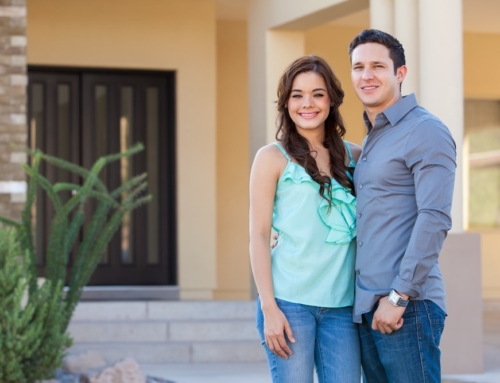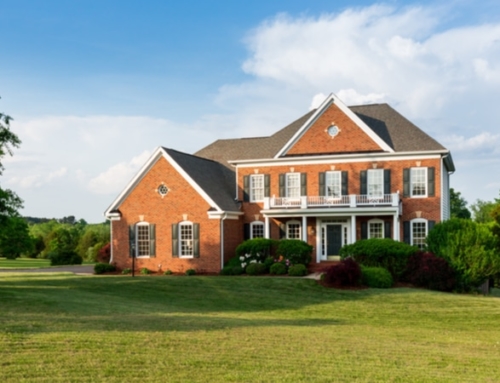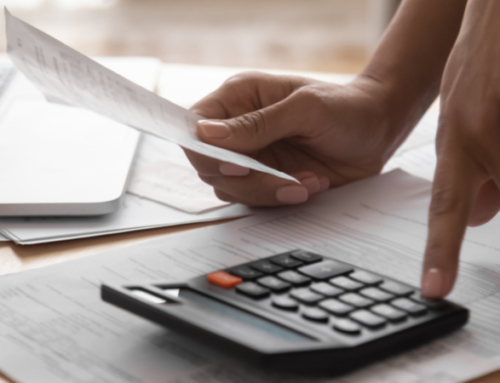Q: We are retiring in 3 years. We have a rental house that will be sold along with our primary residence to finance the building of our retirement home. What is the best way to dispose of the rental property to glean the maximum $ for our use? It has been rental prop for 15 years.
What must we do in order to save on the capital gains (CG) tax? I know there is a $250K (or maybe it’s $500K) lifetime deduction on CG. We have a tenant who wants to buy. Should we sell it now and purchase another rental prop or can that go into purchasing the land that we’ll be building on?
If we sell now and purchase again, will the CG from the old house carry over or will there only be the CG for the 3 years we own the new property? Obviously 3 yr vs. 15 yr CG is a big difference. If this is the better way to go, what is the minimum time we must own the new prop to avoid CG on it when we sell it?
We really don’t want to move back into the rental house next year unless we absolutely have to. It was our primary residence until we built where we are now. The neighborhood has gone down some and obviously being rental prop for so long it will need a lot of fixing up to bring it back to our standard of living. I’m not sure the expense of rejuvenating will be worth the cost.
A: You cannot save ANY capital gains taxes on your rental property. Tax law currently permits you to take up to $500,000 in capital gains tax free if you’ve lived in your primary residence for 2 of the past 5 years. You don’t qualify. If you’re going to purchase another rental property, you can do a 1031 tax free exchange (also known as a starker trust). Your tax advisor should be able to help you here, or a real estate attorney, or your local title/escrow company.
Depending on your tax bracket when you sell, you will probably pay 20 percent tax on your profits. As for your primary residence, you can take the capital gains exclusion when you sell as long as you meet the requirements.
As for financing your retirement home, you should probably sell your rental home first and use those proceeds as a downpayment. You can secure a mortgage on the rest, and then pay it off when you sell your primary residence.
Q: If we make $30,000 on the sale of our home and do not use any (or very little) of it for a down payment on a new home, will we have to pay taxes on the portion that is not used for the purchase on the new home? I thought I heard you say on the radio that only very large sums were taxed.
A:You can keep up to the first $250,000 (if you’re single, $500,000 if you’re married) in profits tax free. It doesn’t need to be reported. But you must have lived in your home for two of the past five years, and you can only take the exclusion once every 24 months.
Q: In the summer of 2000, my husband and I sold and bought a home. We reinvested all of the gain on the prior home into our new home.
My husband has recently received a terrific job offer in another city (very unexpected, otherwise we wouldn’t have moved in 2000). We are seriously considering the relocation, especially because it would be back to my husband’s home town with lots of friends and relatives. If we relocated, we would do so probably this Fall, 2001.
My question relates to the taxes on the gain we stand to make by selling our current home. We have done a number of worthwhile cosmetic repairs to this home and will very likely make 20 – 30K in this short time. Since we will not have been living in the house for 2 years before we sell it, is it true that we cannot take advantage of the new tax exclusion for profit from the sale of a home? Will we be required to pay taxes on this profit? Even though this is an unexpected relocation due to a job change? If we roll all of the profit from this house into the new house in our new town, do we still have to pay the taxes?What is the capital gains rate? We have never had capital gains before . . .
A: If your husband moves more than 50 miles to take another job, you can take a proportionate share of your capital gains tax free. If you stayed 2 years, you could take up to $500,000 tax-free. If you stay 1 year, you can take up to $250,000 tax free.
Double-check with your accountant, but I think you guys will be okay.
Q: I am in the process of selling approximately $100,000.00 of property. This is several acres of the property I live on now. We are splitting the property and selling part of it. We owe approx $30,000 on our house. My question is do I have to pay capital gain and if I do can I pay off what I owe and take that money out of the total I get?
A: I don’t know the answer to your question. My best educated guess is you will have to pay some part of the capital gain because the $250,000/$500,000 tax free in profits is for the sale of your primary residence. Because you’re keeping the residence, the portion of the land you sell off becomes investment property. The real question is how to divide up the cost of purchase.
Please consult with an account and a real estate attorney to help you do this correctly. Typically, capital gains tax is 10 percent if your income is less than the 28 percent bracket, and 20 percent if you’re in the 28 percent bracket or above.
Q: I am selling my house and will close on Sept 4th. I owned my house for 5 years and 9 months. My question is that what ever profits I made from the sell of my home, Do I have to pay Capital Gains Taxes if I don’t reinvest it in the purchase of a new home within a 2 year time frame? And is there something in writing, maybe a recent law change that would permit me to not pay taxes (period!) whether I reinvest the money or just deposit it in the bank?
A: You will owe no taxes if your profit is less than $250,000 or less than $500,000 if you are married. You don’t even have to tell the IRS!
Q: A friend of ours is selling her home but, will be reinvesting the profits in to another home. She is over the age 55. We would like to know if she will have to pay capital gains tax from the profits on the sale of her home even though it is being reinvested in another property?
A: If she is married, she and her spouse can keep the first $500,000 in profits tax free, as long as she has lived in her home for 24 months. If she is single, she can keep the first $250,000 in profits tax free. If her profits exceed these amounts, she would owe capital gains tax (long-term) on the excess, which maxes out at 20 percent.
Q: I am about to sell my home in PA so I can move back to GA. On my closing date I will only have lived in the home for 18 months. I will have about 21,000 in capital gain. I was told by a friend that if I am moving 50 miles or more away from my current home than I am excluded from paying capital gains on the sale of my current home, but I must re-invest in an equal or greater priced house in GA.
Is this true? If so, what is the timeframe in which I must purchase a new home? The truth is I don’t want to buy as expensive home as I have now. If I don’t, will I have to pay some fine or tax on the difference?
A: Your friend is half right. If you move 50 miles or more to take a new job, you can take a proportionate share of your profits tax-free. For example, if you’ve lived in the house for 2 of the past 5 years, and you’re single, you’d be able to take $250,000 tax free in profits when you sell ($500,000 if you’re married). Since you’ll be there 18 months, or 75% of the required time, you can take 75% of the $250,000 tax free, or up to $187,000 in profits tax free. There is no requirement to rollover your profits into another home. That rollover replacement rule was eliminated several years ago.
Please check with a real estate attorney or tax preparer for details on what kind of state tax you may or may not owe on your profits.
Q: My wife and I are about to sell our primary residence in a effort to get closer to work. We have not been in the house for a full two years so I am looking for info on the capitol gains taxes. Is if pro-rated, i.e. since we were there for a year and a half we get to exempt $375,000?
Assuming there is no pro-rating, should we wait to sell after the two year window? We are only a couple of months from the two year time. However we have already bought the other house and would have to carry two notes.
A: Wait to sell if you can. There is no proration until you’re moving 50 miles to take a new job.
Work out the difference between the carrying costs of the house and the amount different you’d pay in capital gains taxes. That should tell you what to do.
Q: I enjoyed listening to you in Atlanta over the holidays. I have a question maybe you can help me with.
I sold a home in California in July of 2000 before moving to the Atlanta area. I only owned the home for 15 months. I made a profit of about $25,000 on the home. What are the current tax laws pertaining to this situation?
It is my understanding that if you live in the house less than 2 years you have to pay capitol gains tax on the profit. I also have heard that I have 2 years to buy a new home that is equal to or greater in price than the selling price of the one I sold to avoid taxes on this money.
I understand the purpose of the 2 year rule. It was designed to target people who were buying and selling real estate for a living and avoiding income tax. Is there a clause in the law for people who had to move for career purposes?
Can you please help me with the right answer.
A: If you had to move more than 50 miles for your job, you can take a proportionate share of the profit tax free. So if you’d stayed for 24 months, you could have taken up to $250,000 in profits (up to $500,000 if you’re married) tax free. Since you sold at 15 months, you can take approximately $150,000 in profits tax free.
Check the IRS rules regarding moving because the same rules apply for capital gains relating to a home sale when you sell to change jobs.
BTW: the 24-month rollover replacement rule no longer exists. You keep the cash tax free whether or not you buy another home.






I sold my property for a net profit of 60,100 and bought a home for 215.000.00 90,000.00 cash down and financed the 12500.00 do I need to claim the 61,100.00 on the sale of the property if I reinvested the money to my new home?
What if you build a house but never rent it or live in it? How is the gain taxed?